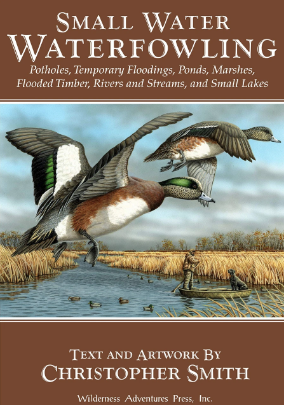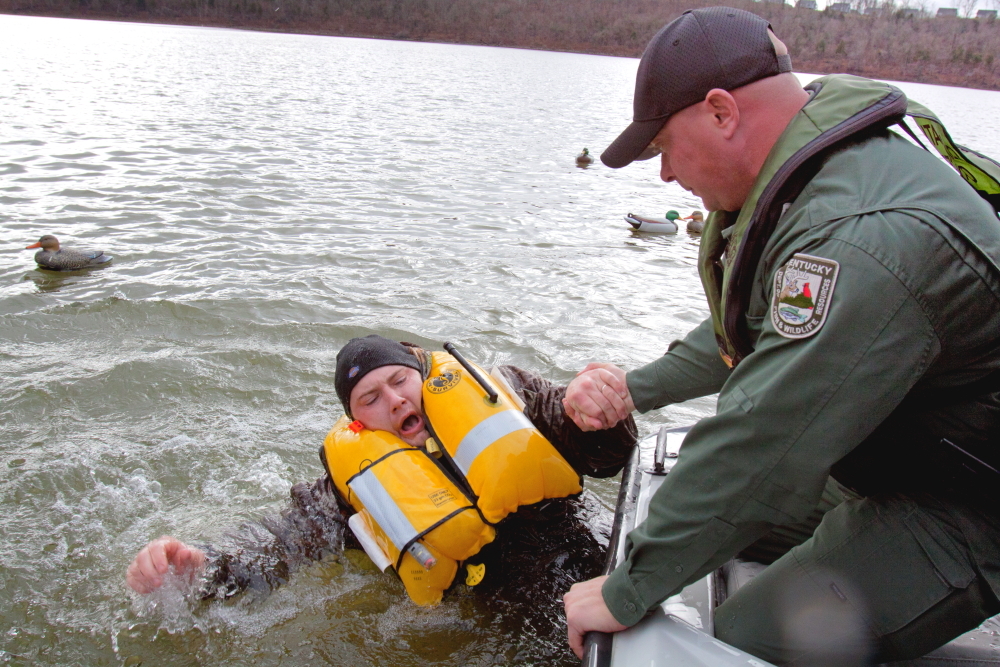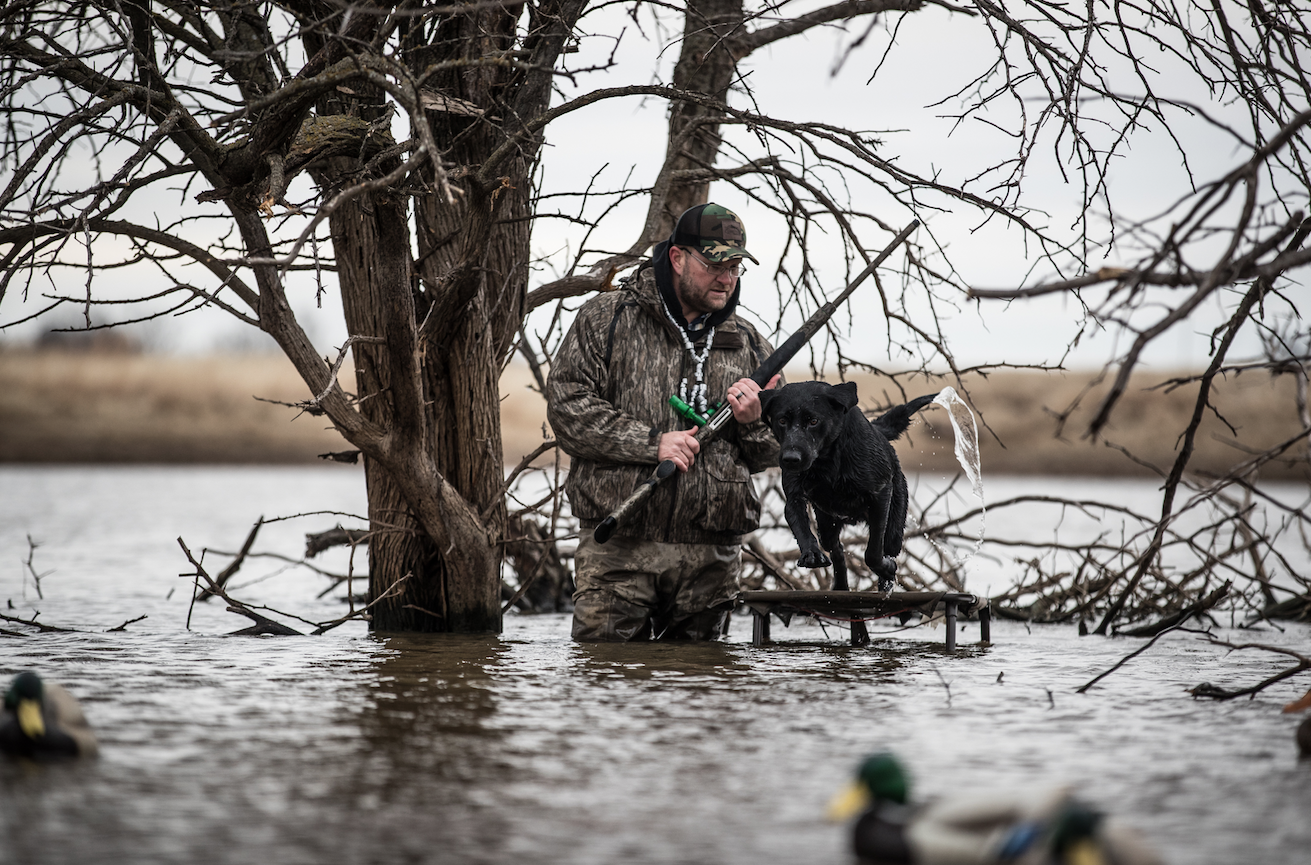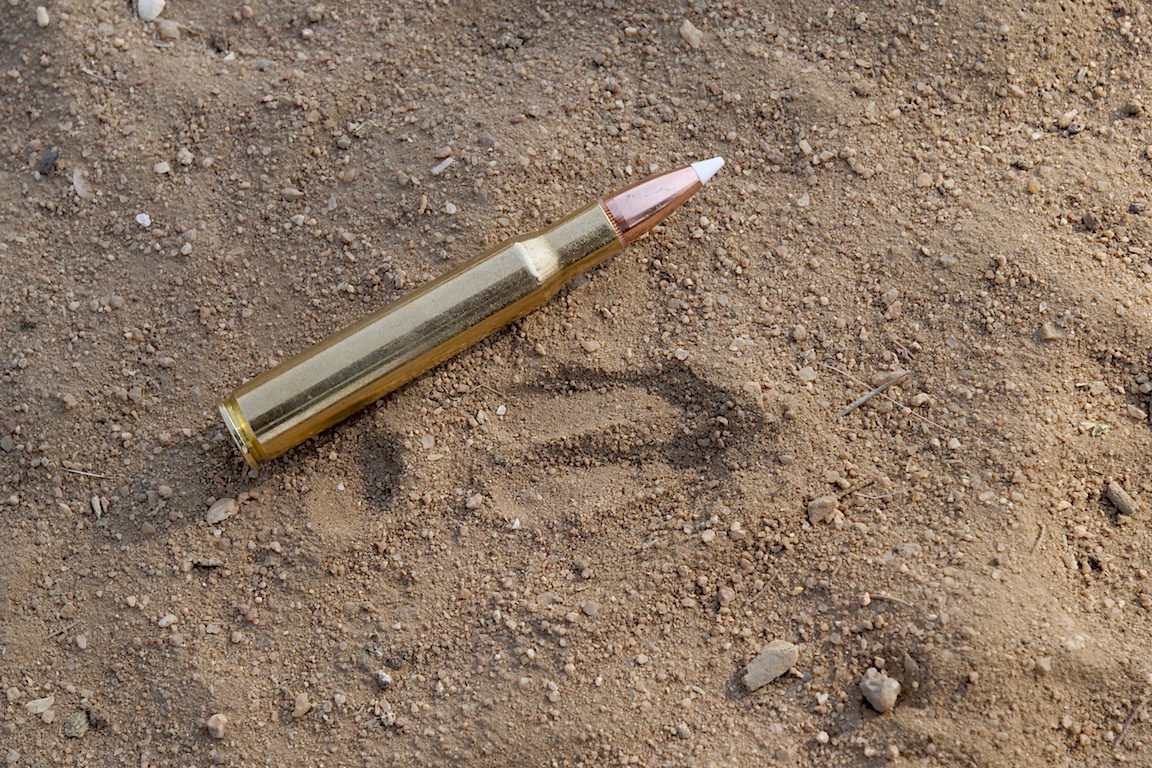Waterfowl hunters often forget they are boaters, too. Failing to keep safe boating in mind while hunting can lead to disastrous results.
“A person in distress in the water can be a bad situation in summertime, but in cold weather, due to water temperatures, your danger level is exponentially increased,” said Marcus Bowling, boating education coordinator for the Kentucky Department of Fish and Wildlife Resources.
Life jackets are even more important during this time of year, and should be worn at all times while boating. Personal floatation devices designed for hunters include vests, floatation coats and waist belts.
“Manufacturers make a wide variety of life jackets to accommodate hunters and anglers comfortably, so there is no excuse for not wearing it,” Bowling said. “Life jackets are proven to save lives. Statistics consistently show that most drowning victims were not wearing a life jacket at the time of the incident.”
Kentucky Fish and Wildlife offers the following tips to help hunters be safer boaters this winter:
- Don’t overload the boat. Hunters must keep the boat’s weight capacity in mind when loading it with a dog, decoys and hunting equipment. The capacity plate found on most boats will provide its load limit. Leaning over the side of an overloaded boat to either put something in the water or retrieve something is a common reason for falling out of the boat.
- Stay calm if you go overboard. Being aware of what is happening and staying calm can increase your chances of self-rescue. Your body will experience immediate shock and you will gasp for air once you enter the water. Even if the boat has been capsized, try to get back on because going unconscious in the water is the last thing you want to happen. If you are with someone else, huddle together to prevent heat loss. If you are alone, hold the fetal position by bringing your knees up to your chest.
- Be mindful of hypothermia. Hypothermia is the biggest threat to someone in the water during cold weather because the body loses heat faster than it can produce it. Physical signs of hypothermia include shivering, teeth-chattering and sleepiness. Hypothermia can leave someone unconscious within an hour. If you happen to go overboard, you will have about 10 minutes of effective swimming before you start to lose muscle control. Blood leaves extremities to protect vital organs, and cold water draws even more heat from the body than cold air. Without a life jacket, the time drops to a few minutes.
- Waterlogged waders sap heat. Waders are especially vulnerable if they become waterlogged, and water safety should still be practiced even when using small bodies of water to hunt or fish. Cold temperatures in combination with wet clothes can easily overtake even the most bundled hunters.
- Keep a fire extinguisher on board. Waterfowl hunters typically use portable heaters on their boat. A functioning fire extinguisher is required on any boat carrying any flammable liquid on board.
Waterfowl hunters or winter anglers should establish a float plan before heading afield. A float plan includes contact and emergency contact information for everyone in your party, planned locations and times of the outing, the type of vehicle and boat and the anticipated return time. This plan should be shared with those who are not going along. If an excursion afield ever goes awry, first responders will have a starting point to rescue you.
“Boaters should be alert year-round, but the colder months present an extra set of challenges,” Bowling said. “Make that annual waterfowl hunting trip one to remember by staying safe and heading home afterward with the beauty of a Kentucky winter in mind.”
For more waterfowl hunting information, view the department’s online Waterfowl Guide.
 When it comes to actually shooting ducks and geese over water, the action is on the small places – the inland lakes, the ponds and potholes, the floodings and creeks and backwaters. Day in and day out, that’s where the ducks are, and that’s where Chris Smith takes you.
When it comes to actually shooting ducks and geese over water, the action is on the small places – the inland lakes, the ponds and potholes, the floodings and creeks and backwaters. Day in and day out, that’s where the ducks are, and that’s where Chris Smith takes you.
His knowledge of duck and goose hunting has been earned through both experience and education. A native of Michigan, he holds a BS in Wildlife Management from LSSU in Michigan’s Upper Peninsula which, he jokes, “was a good way to go to class in the morning and duck hunt in the afternoon.” His love for waterfowl has come through in the 20-plus years panting wildlife in his “other” job, with four state duck stamp titles and two state Ducks Unlimited Sponsor Print titles to his credit, as well as placing high in the national event.
But what sets him apart is his skill, his knowledge, and his techniques accumulated over nearly four decades, a dozen states, and a half-dozen Canadian provinces. In all, this is one of the finest treatises on waterfowling to come out in years—because small water means big sport. All copies now include a personal inscription accompanied by a small original pencil drawing, signed by Christopher Smith. Buy Now




